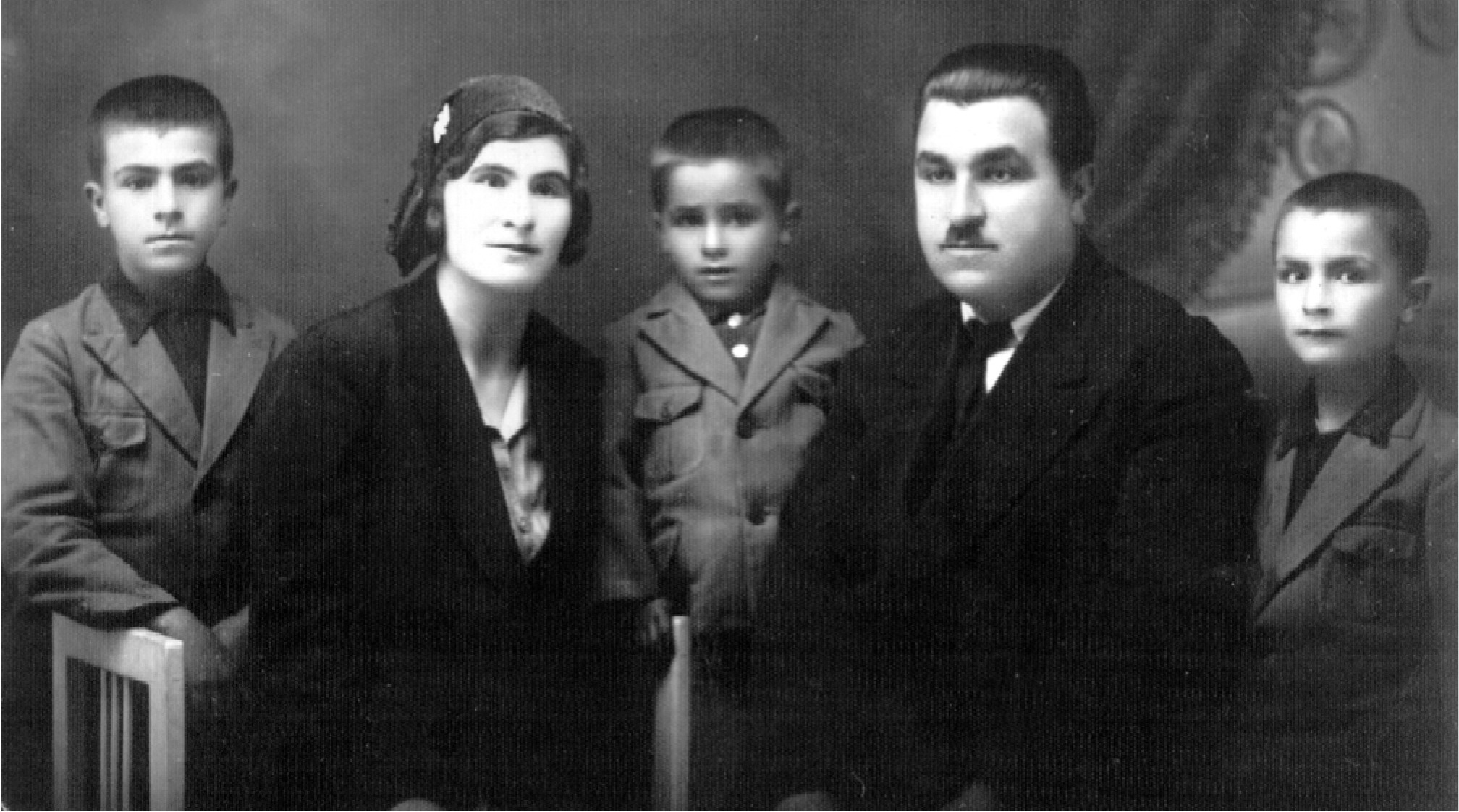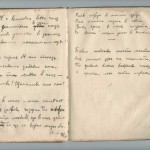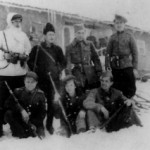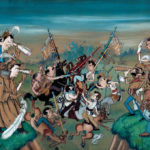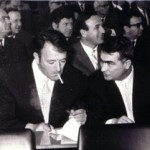This post is also available in: Macedonian French Spanish German Russian Serbian Slovenian Croatian Bosnian Albanian Bulgarian Italian
Aco Šopov – A Short Biography
Macedonian poet Aco Šopov [at͡sɔ ˈʃɔpɔf], considered one of the most important poets of Southeastern Europe, was born on 20 December 1923, in Štip where he lived with his parents, Kostadinka and Gjorgji, and two brothers, Dimitar and Borislav. Influenced by his mother, a schoolteacher who herself wrote love lyrics, Šopov’s poetic debut took the form of writing for a wall newspaper in his high school.
“Hundred-headed monster” as he called it at the end of his life, his childhood was marked by the specter of incurable diseases and death, sadness and loneliness that would permeate his poetry from his first poems written in a school notebook, at the age of fourteen, to the last. He was only eleven years old, when he took care alone of his mother who died prematurely from a serious illness.
Engaged in the partisan resistance to the Nazi occupying forces in 1943, at the age of 20, Aco Šopov continued writing poetry. His poetry showed him to be a highly personal poet even when he was chronicling events of a social or patriotic nature. He found his subject matter in his own experience, as when describing the death of a much-loved woman, Vera Jocić, who was a fellow partisan.
From his earliest work Šopov dropped out the poetic conventions in vogue. During the war, he wrote love poems and later he openly attacked the dictates of socialist realism. Because he refused to abide by the official rules of art, Šopov was first blasted by the official literary criticism in the 1950s, and then also unanimously recognized, several years later.
With Verses of Sorrow and Joy (1952) and Merge with Silence (1955) there came a turning point in Sopov’s poetry and conceivably in Macedonian poetry at large. These poems were at the core of a kind of “Quarrel of the Ancients and the Moderns“ in Macedonia.
 Speaking with a voice of his own, Šopov charted his very personal course in poetry, without being a dissident. “The poet’s greatest challenge and the greatest moral responsibility,” he said in an interview, “is to find the right words to the contents and ideas he wants to express in an authentic and inimitable way. If he fails, the poem is pulled out of its socket, the word becomes a lie.”
Speaking with a voice of his own, Šopov charted his very personal course in poetry, without being a dissident. “The poet’s greatest challenge and the greatest moral responsibility,” he said in an interview, “is to find the right words to the contents and ideas he wants to express in an authentic and inimitable way. If he fails, the poem is pulled out of its socket, the word becomes a lie.”
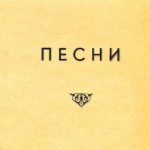 Since his first collection, Poems, that was also the very first book to appear in the Macedonian language at the end of the Second World War, in 1944, until the last Tree on the Hill, published in 1980, two years before he died, Aco Šopov laid the foundations for resolutely modern poetry (in particular with Unbeing and Reader of the Ashes) which built on his native soil with the sole ambition of inscribing itself in the world cadaster. His work merges the poet’s life, his country’s fate and the common destiny of mankind into one and the same intimate experience.
Since his first collection, Poems, that was also the very first book to appear in the Macedonian language at the end of the Second World War, in 1944, until the last Tree on the Hill, published in 1980, two years before he died, Aco Šopov laid the foundations for resolutely modern poetry (in particular with Unbeing and Reader of the Ashes) which built on his native soil with the sole ambition of inscribing itself in the world cadaster. His work merges the poet’s life, his country’s fate and the common destiny of mankind into one and the same intimate experience.
In 1967, Aco Šopov became one of the founding members of the Macedonian Academy of Sciences and Arts, and was awarded with the AVNOJ in 1970. The AVNOJ Prize was the highest recognition in the field of science and art in the frames of the former Yugoslavia.
After many years of journalism and publishing, in 1971 Aco Šopov was nominated Yugoslav Ambassador to Senegal, a country that was his source of inspiration for the book The Black Women’s Song (Miladinov Brothers Award, 1976). While in Africa, he translated a selection of the poetry of Senegalese President Leopold Sédar Senghor, who received in 1975 the “Golden Crown” at the Struga Poetry Evenings. This international festival, held each year in the South of Macedonia, was founded in 1961 by Šopov himself with a group of Macedonian poets.
Back in Macedonia, Aco Šopov was appointed President of the Commission for Cultural Relations with Foreign Countries. But just three years later, the disease, as foreshadowed in his poems, forced him to retire from active life.
Father of Vladimir, born in 1948 of his marriage to Blagorodna, and deceased prematurely in January 2000, and of Jasmina, born in 1960 of his mariage to Svetlana, Aco Šopov still had the pleasure of witnessing towards the end of his life the birth of his grand children Aleksandar and Leonardo. But he didn’t get to meet Mila and the second Aleksandar. After a long illness, Šopov died on 20 April 1982, in Skopje.
To learn more, see A life in pictures.
The photos on this page (except for the caricature that belongs to the Macedonian Writers Society) can be downloaded and reproduced provided © Aco Šopov – Poesis is mentioned.

